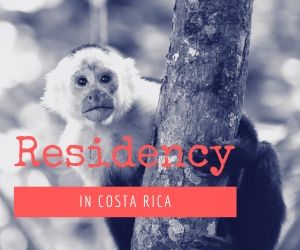|
This is called "extraterritorial law" and is a very grey, arbitrary, confusing, and fluid concept. Those very few lawyers that specialize in it actually probably do deserve the several hundred thousands of dollars that some of them can make in a year if they are very good at what they do. There are a few basic concepts that I will state as simply as I can (please don't bust my balls on nuances, details, and exceptions, this is just a general overview of the concepts of extraterritorial law).
1. The USA cannot do anything to you on foreign soil. The USA has zero authority on foreign soil. However...
2. Other countries can grant the USA authority to do things to you on their soil. It is totally up to the country that you are in, and could include extremely limited or unlimited authority, and everything in between.
3. The USA has agreements with many of its allies and diplomatically associated countries to do certain things to its citizens on the soil of those countries, already established in writing and available at all times to the USA government.
4. Certain international treaties (not necessarily agreed upon by every country in the world, but the vast majority of them) grant authority to most countries (not just the USA) to apprehend, deport, and prosecute its own citizens at will, for certain internationally recognized crimes. For example, as discussed earlier, sexually explicit photos of 8-year-old Ch*ldren or human trafficking will pretty much leave you with very few places on planet Earth to hide.
5. USA law allows you to be prosecuted for any activity that is, by law, illegal in the USA, that you perform in another country, that has an "impact" on the USA, even if you never performed any of this action that is considered a crime in the USA on USA soil. The USA cannot necessarily do anything to you while you are outside the USA, but you can bet the farm that when you hit that immigration desk at the airport in Miami that the hammer is coming down hard. This is where you will really need that lawyer that is the freakin' Bobby Fischer of extraterritorial law. Talk about a minefield of implication, assumption, and wildly open to interpretation law. ?????
6. The USA law states that activities that are crimes in the USA may be prosecuted on persons performing those activities on aircraft or watercraft that made their most recent departure or most recent arrival in USA territory. It has also been stated that a crime anywhere in the world on board a USA-registered aircraft or vessel is fully prosecutable under USA law. There is not really any provision for the possibility that the "crime" may have occurred in international airspace or international waters, or even entirely within the boundary (or boundaries) of territory controlled by a country or countries other than the USA. I am not sure whether anyone has seriously challenged this in the USA court system, but I think that case is winnable. But you better have some stacks of cash ready to fight that battle.
7. USA crimes related to USA government employees or property are considered by the USA to be fully prosecutable under USA law. Once again, extradition, authority on foreign soil, etc. are still potential issues depending on the country or countries involved. However, this is one of those little quirks of law that will definitely bite you in the ass. True Story -- 2 USA citizens are in a bar in a foreign country. Guy #1 punches Guy #2 in some kind of drunken argument. The local police do show up, but they decide it's just 2 drunk gringos having a minor bar fight and kick them out of the bar in different directions. Both dudes go to their respective hotels and go to sleep. No harm done, right? Guy #1 goes back to the USA, and at the immigration desk, to his surprise, he is arrested. Guy #2 has already entered the USA and has filed charges. Guy #1 posts bail, gets a lawyer, who at the first meeting says that assault and battery in a bar in a foreign country is in no way prosecutable in the USA. He tells Guy #1 to relax and go home, and it will be dismissed in court. A day or two later, the lawyer for Guy #1 gets the paperwork from the DA's office. OH SHIT!!!! Guy #2 is a low-level paper-pusher for the IRS. Yep, a government employee. Guy #1 gets 18 months and has to pay (I forget the exact amount) around $25,000.
-----
The Secret Service guys in Colombia committed no crime. Prostitution is legal in Colombia, and current interpretation in the USA is that soliciting a prostitute is not covered by the USA's extraterritorial law provisions. It's not even as serious as a parking ticket, it's nothing, no crime, no infraction, NOTHING. But anyone, whether government or private-sector employees, can be punished or fired for violating the standards of conduct for their job. That's simply a violation of your contract of employment and has nothing do with government, although in this case it was government employees, which probably threw a lot more fuel on that particular scandal fire. The Secret Service guys did absolutely nothing wrong under USA law. USA law DOES NOT apply to any USA citizen that is not on USA soil, unless the law specifically spells out the conditions under which the law DOES apply on foreign soil. Like I said before, extraterritorial law is tricky-dicky.
Another couple of points here:
1. It doesn't really matter if prostitution IS ILLEGAL in Columbia. USA law simply does not recognize the laws of other countries in this regard. Soliciting prostitution is not covered by extraterritorial law, so it is entirely up to the host country to conduct any prosecution that it sees fit.
2. Prostitution and soliciting prostitution is legal (technically, not addressed and therefore not illegal) under federal law. It is legislated by the states and lower governments (remember, it is legal in certain sections of the USA). This is not really relevant, but it is an interesting point to ponder.
------
As for USA Customs (CBP) searching your stuff, yes, they absolutely can. This is another tricky area to understand, and I'm not a lawyer, although I have had extensive training in my job for international travel, including classes on law and how it applies to international travel. It is different in every country, but here is the cliff's notes version of how it works in the USA. The best explanation I have heard is that, for example, at the airport, when you land on a flight from a foreign country, you are in effect requesting permission to enter the USA. As a citizen or resident of the USA, you enjoy certain privileges that foreigners do not. But from the moment you get off the airplane, you are an unknown. You MIGHT be a USA citizen or resident and you MIGHT have a USA passport and your bags MIGHT NOT contain dangerous materials, but how does anyone really know that? In effect, when you left the USA, you voluntarily removed yourself from the USA's sphere of influence and "ceased to exist" in the sense that your person (your face, your appearance, your claims to be who you are) is no longer positively associated with the ID that you MIGHT be carrying. And your bags have been outside of the USA's sphere of influence too, so how does anyone really know that even if you are a citizen, that you are not a subversive bring dangerous items into the USA? The USA has no control over how other countries screen people and baggage, although there are mutual agreements with most countries (ICAO has a big hand in this). Bottom line is that the USA does not trust any foreign country to adequately screen passengers and baggage headed for the USA. Might be a little paranoid, but it is for the protection of all USA citizens and residents that are within the "shell" of the USA's fully controlled territory. Not saying it's right or wrong, it's just the way it is. Basically, before you cross both the Immigration and the Customs checkpoints, you are nobody. Once you have "proven" that you are a USA citizen or resident, and that you have nothing illegal or dangerous in your bags or on your person, and you cross that magic line at Customs, you instantly "exist" again. Anyways, I thought it was a pretty good way to teach the concept.
--------
Turning on or using your electronic devices (laptop, phone, camera, etc.) is a CBP security regulation that is not strictly related to the process of immigration or entering the USA. The purpose of not allowing electronics operating in the CBP areas is to prevent any recording of potentially sensitive situations and procedures, interference with other equipment, etc. This restriction also applies to airport employees and CBP officers in these areas that are not subject to the immigration and customs clearing process.
Last edited by stlribs on Sat Sep 21, 2013 4:17 pm, edited 6 times in total.
|









